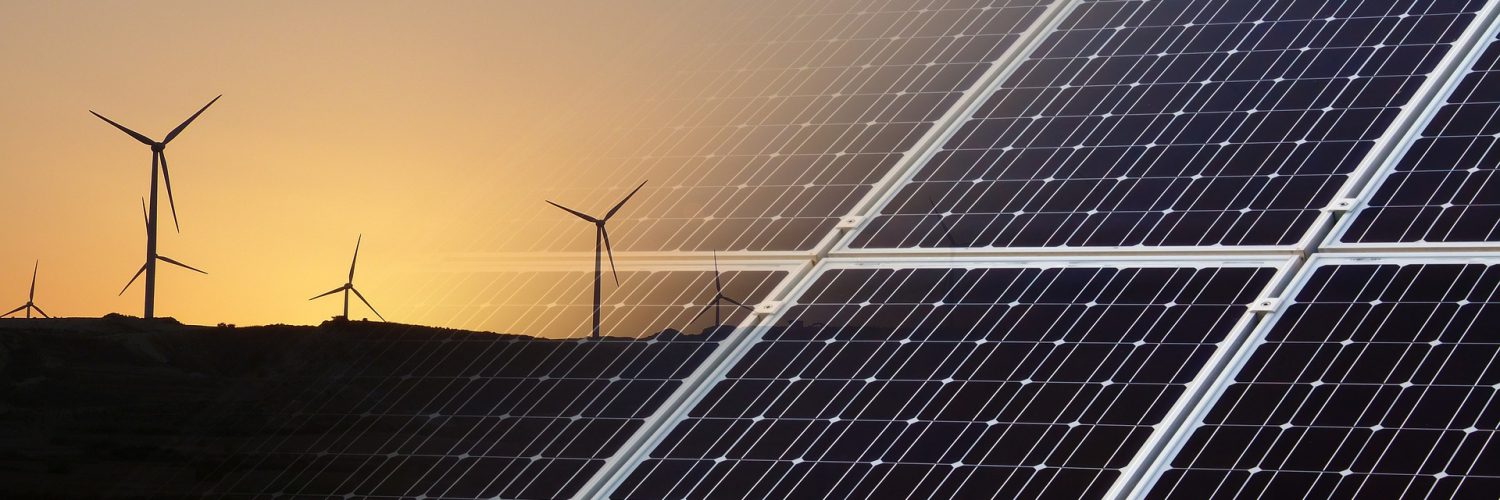A bill advancing through both houses of the Arizona Legislature aims to clarify that state lawmakers, not utility regulators, have the authority to determine what clean energy goals are best for the state.
The body that regulates utilities, the Arizona Corporation Commission (ACC), voted 3-2 to remain neutral on the issue for now.
Meanwhile, the legislation has stirred debate statewide over who has constitutional authority to establish the standards. Hundreds of individuals and organizations have lined up on both sides.
Ultimately, the Arizona Supreme Court may have to decide where the true power lies.
Question over constitutionality
Gov. Doug Ducey and state lawmakers who favor legislative control believe the Commission overstepped its constitutional authority in setting renewable energy goals years ago for regulated utilities like Arizona Public Service (APS) and Tucson Electric Power (TEP).
“I want to see the Corporation Commission setting rates and I want to see the state Legislature setting energy policy and I hope we can straighten that out this legislative session,” Ducey said during the Arizona Chamber of Commerce and Industry’s 2021 Legislative Forecast Luncheon last month.
Debate started after ACC ramped up energy goals
The recent showdown came after the ACC approved a proposal in November to ramp up clean energy and renewable energy requirements even though large utilities like Arizona Public Service and Tucson Electric Power have been working to meet clean energy goals, investing hundreds of millions of dollars in infrastructure like solar energy plants and wind farms.
Several legislators then introduced two mirror bills, Senate Bill 1175 and House Bill 2248, to cement their authority over energy policy.
Sen. Sine Kerr, R-Buckeye, one of the sponsors, stated at a January hearing last month that ACC is authorized by the constitution to regulate customer utility rates, not set energy policy. Kerr said the state constitution clearly defines the commission’s “intended function.”
“That is, exercising ratemaking authority to protect captive consumers against corporate abuse, while restoring the Legislature’s paramount authority to regulate public health, safety and welfare as recently affirmed by the Arizona Supreme Court,” she said.
Kerr was referring to the court’s ruling in another case involving the takeover of the trouble-plagued Johnson Utilities in San Tan Valley. In that case, the court acknowledged that the state Legislature and the ACC share authority on issues of public health such as clean air and water, but that the Legislature has the final say.
What does the legislation do?
The measure would prohibit the Corporation Commission from “adopting or enforcing a policy, decision or rule that directly or indirectly regulates the types of critical electric generation resources used or acquired by public service corporations within this state’s energy grid without express legislative authorization.”
It also would prohibit any new mandates beyond current standards that were set by the ACC in 2006. Those standards require regulated utilities to obtain 15 percent of their energy from renewables like solar, wind and hydro power by 2025.
In November, the ACC voted 4-1 to adjust those rules to require utilities to get half of their energy from renewable sources by 2035 and 100 percent from clean energy, including nuclear, by 2050.
Commission votes to take “wait-and-see” stance
Last month, the commission voted 3-2 to remain neutral on the bills as they make their way through the House and Senate.
Commission Chair Lea Márquez Peterson stated at the hearing that the vote was not necessarily meant to secede power to the Legislature, but was merely a wait-and-see move to start communicating with state lawmakers as the measures move forward.
Both bills have now passed through all committees at the Legislature and await approval on the full Senate and House floors before going to the Governor’s office for his signature.
For and against
Opponents of the measure have said they are concerned that the legislation could derail efforts to reduce carbon emissions in the state. Proponents believe the state Legislature has constitutional authority to make policy decisions that impact the health of citizens.
Among the groups supporting the legislation are Americans for Prosperity Arizona, Free Enterprise Club, Goldwater Institute for Public Policy Research, Homebuilders Association of Central Arizona, Market Freedom Alliance, and Republican Liberty Caucus of Arizona.
Among the opposition are the American Lung Association, Arizona Public Interest Research Group, Business for Water Stewardship, Environmental Defense Action Fund, Sierra Club, and Southwest Energy Efficiency Project, Western Resource Advocates, and Wildfire: Igniting Community Action To End Poverty In Arizona.
Voting along party lines
State lawmakers are lined up along party lines on the issue with Republicans — who hold the majority — in favor of the two bills and Democrats opposed.
At the Corporation Commission, Republican commissioners Márquez Peterson, Justin Olson and Jim O’Connor voted in favor of maintaining a neutral stance with Olson stating that he fully supports the legislation.
“Quite frankly, I’m supportive of the objective of this bill and that is to make it clear that the state Legislature, governor and executive branch have that responsibility of establishing policies for public health,” he said.
Democrats Sandra Kennedy and Anna Tovar voted against the measure, accusing the Legislature of a “power grab.”
“I am pretty saddened today,” Kennedy said after the vote. “We have taken an oath of office to uphold the Constitution. Clearly, this is unconstitutional.”
















Add comment